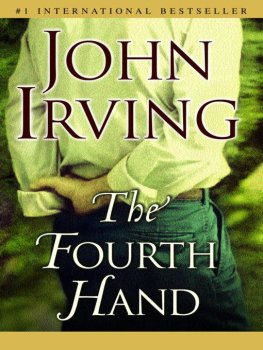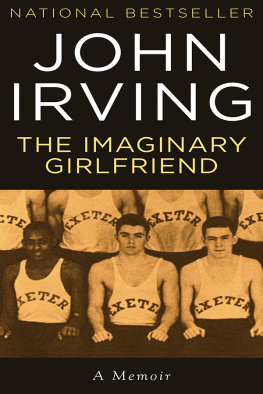Knickerbocker's History of New York, Complete
Washington Irving
To the Public
"To rescue from oblivion the memory of former incidents, and to render a just tribute of renown to the many great and wonderful transactions of our Dutch progenitors, Diedrich Knickerbocker, native of the city of New York, produces this historical essay." Like the great Father of History, whose words I have just quoted, I treat of times long past, over which the twilight of uncertainty had already thrown its shadows, and the night of forgetfulness was about to descend for ever. With great solicitude had I long beheld the early history of this venerable and ancient city gradually slipping from our grasp, trembling on the lips of narrative old age, and day by day dropping piecemeal into the tomb. In a little while, thought I, and those revered Dutch burghers, who serve as the tottering monuments of good old times, will be gathered to their fathers; their children, engrossed by the empty pleasures or insignificant transactions of the present age, will neglect to treasure up the recollections of the past, and posterity will search in vain for memorials of the days of the Patriarchs. The origin of our city will be buried in eternal oblivion, and even the names and achievements of Wouter Van Twiller, William Kieft, and Peter Stuyvesant be enveloped in doubt and fiction, like those of Romulus and Remus, of Charlemagne, King Arthur, Rinaldo, and Godfrey of Boulogne.
Determined, therefore, to avert if possible this threatened misfortune, I industriously set myself to work to gather together all the fragments of our ancient history which still existed; and, like my revered prototype, Herodotus, where no written records could be found, I have endeavored to continue the chain of history by wellauthenticated traditions.
In this arduous undertaking, which has been the whole business of a long and solitary life, it is incredible the number of learned authors I have consulted, and all to but little purpose. Strange as it may seem, though such multitudes of excellent works have been written about this country, there are none extant which give any full and satisfactory account of the early history of New York, or of its three first Dutch Governors. I have, however, gained much valuable and curious matter from an elaborate manuscript, written in exceeding pure and classic low Dutch, excepting a few errors in orthography, which was found in the archives of the Stuyvesant family. Many legends, letters, and other documents have I likewise gleaned in my researches among the family chests and lumber garrets of our respectable Dutch citizens; and I have gathered a host of wellauthenticated traditions from divers excellent old ladies of my acquaintance, who requested that their names might not be mentioned. Nor must I neglect to acknowledge how greatly I have been assisted by that admirable and praiseworthy institution, the New York Historical Society, to which I here publicly return my sincere acknowledgments.
In the conduct, of this inestimable work I have adopted no individual model, but, on the contrary, have simply contented myself with combining and concentrating the excellences of the most approved ancient historians. Like Xenophon, I have maintained the utmost impartiality, and the strictest adherence to truth throughout my history. I have enriched it, after the manner of Sallust, with various characters of ancient worthies, drawn at full length and faithfully colored. I have seasoned it with profound political speculations like Thucydides, sweetened it with the graces of sentiment like Tacitus, and infused into the whole the dignity, the grandeur and magnificence of Livy.
I am aware that I shall incur the censure of numerous very learned and judicious critics for indulging too frequently in the bold excursive manner of my favorite Herodotus. And, to be candid, I have found it impossible always to resist the allurements of those pleasing episodes, which, like flowery banks and fragrant bowers, beset the dusty road of the historian, and entice him to turn aside, and refresh himself from his wayfaring. But I trust it will be found that I have always resumed my staff, and addressed myself to my weary journey with renovated spirits, so that both my readers and myself have been benefited by the relaxation.
Indeed, though it has been my constant wish and uniform endeavor to rival Polybius himself, in observing the requisite unity of History, yet the loose and unconnected manner in which many of the facts herein recorded have come to hand rendered such an attempt extremely difficult. This difficulty was likewise increased by one of the grand objects contemplated in my work, which was to trace the rise of sundry customs and institutions in these best of cities, and to compare them, when in the germ of infancy, with what they are in the present old age of knowledge and improvement.
But the chief merit on which I value myself, and found my hopes for future regard, is that faithful veracity with which I have compiled this invaluable little work; carefully winnowing away the chaff of hypothesis, and discarding the tares of fable, which are too apt to spring up and choke the seeds of truth and wholesome knowledge. Had I been anxious to captivate the superficial throng, who skim like swallows over the surface of literature; or had I been anxious to commend my writings to the pampered palates of literary epicures, I might have availed myself of the obscurity that overshadows the infant years of our city, to introduce a thousand pleasing fictions. But I have scrupulously discarded many a pithy tale and marvelous adventure, whereby the drowsy ear of summer indolence might be enthralled; jealously maintaining that fidelity, gravity, and dignity which should ever distinguish the historian. "For a writer of this class," observes an elegant critic, "must sustain the character of a wise man writing for the instruction of posterity; one who has studied to inform himself well, who has pondered his subject with care, and addresses himself to our judgment rather than to our imagination."
Thrice happy, therefore, is this our renowned city, in having incidents worthy of swelling the theme of history; and doubly thrice happy is it in having such an historian as myself to relate them. For, after all, gentle reader, cities of themselves, and, in fact, empires of themselves, are nothing without an historian. It is the patient narrator who records their prosperity as they risewho blazons forth the splendor of their noontide meridianwho props their feeble memorials as they totter to decaywho gathers together their scattered fragments as they rotand who piously, at length, collects their ashes into the mausoleum of his work, and rears a triumphant monument to transmit their renown to all succeeding ages.
What has been the fate of many fair cities of antiquity, whose nameless ruins encumber the plains of Europe and Asia, and awaken the fruitless inquiry of the traveler? They have sunk into dust and silencethey have perished from remembrance for want of a historian! The philanthropist may weep over their desolationthe poet may wander among their mouldering arches and broken columns, and indulge the visionary flights of his fancybut alas! alas! the modern historian, whose pen, like my own, is doomed to confine itself to dull matter of fact, seeks in vain among their oblivious remains for some memorial that may tell the instructive tale of their glory and their ruin.
"Wars, conflagrations, deluges," says Aristotle, "destroy nations, and with them all their monuments, their discoveries, and their vanities. The torch of science has more than once been extinguished and rekindleda few individuals, who have escaped by accident, reunite the thread of generations."
The same sad misfortune which has happened to so many ancient cities will happen again, and from the same sad cause, to ninetenths of those which now flourish on the face of the globe. With most of them the time for recording their history is gone by: their origin, their foundation, together with the early stages of their settlement, are for ever buried in the rubbish of years; and the same would have been the case with this fair portion of the earth if I had not snatched it from obscurity in the very nick of time, at the moment that those matters herein recorded were about entering into the widespread insatiable maw of oblivionif I had not dragged them out, as it were, by the very locks, just as the monster's adamantine fangs were closing upon them for ever! And here have I, as before observed, carefully collected, collated, and arranged them, scrip and scrap, "






